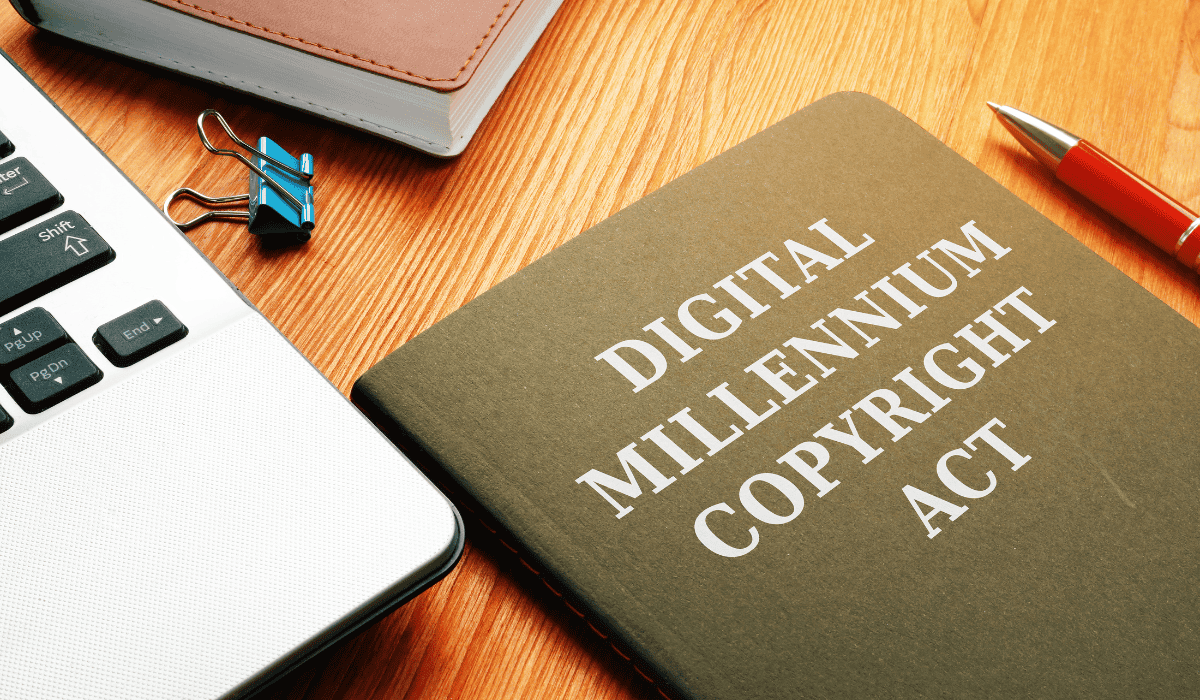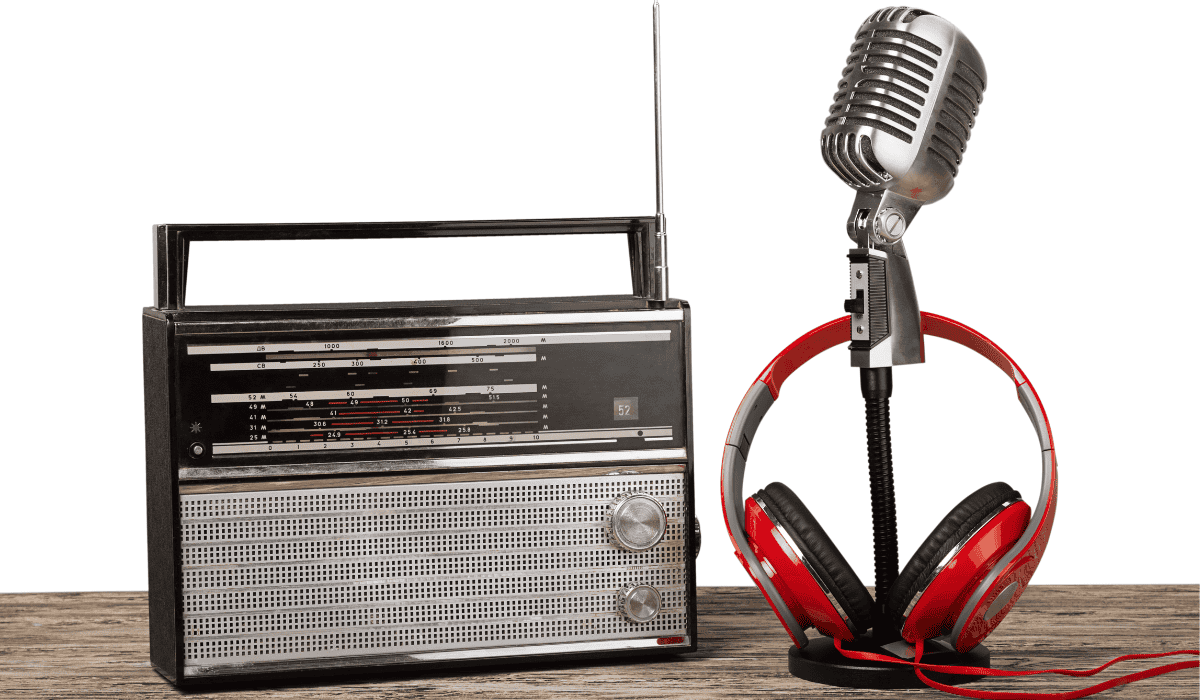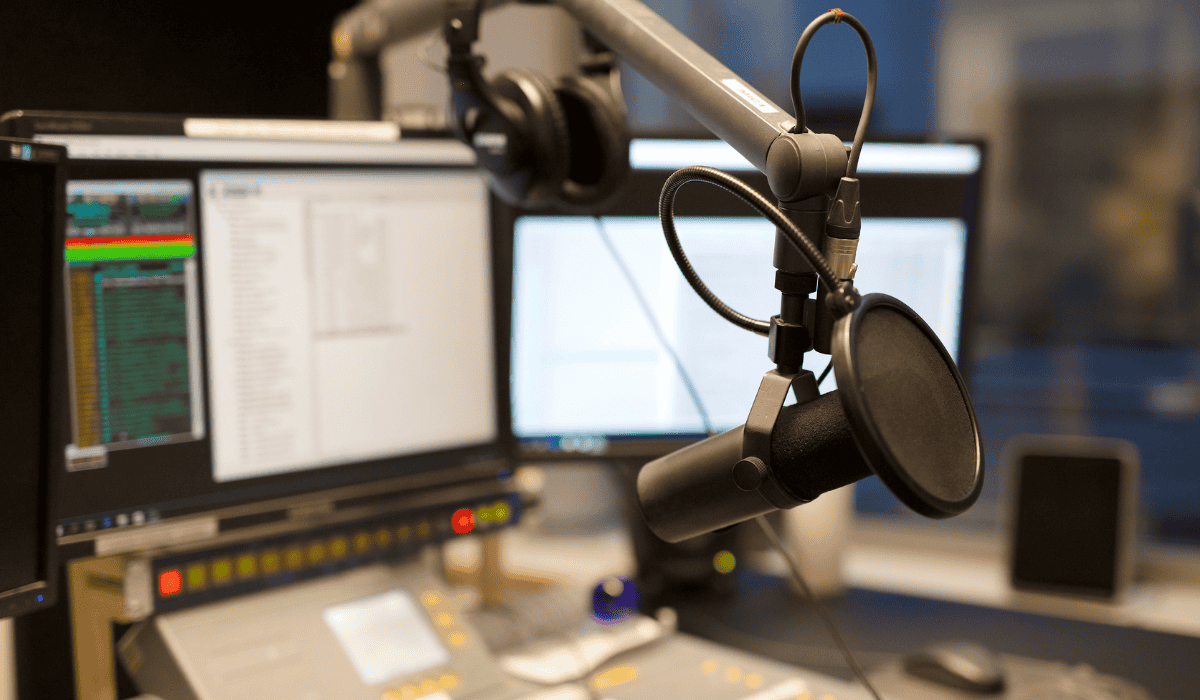
Broadcast License Basics: What Every Station Needs to Know
Obtaining the proper broadcast license is a crucial step for anyone operating a radio station. With music, talk shows, sports, and more being transmitted over the airwaves and the internet, broadcast licensing ensures radio stations stay legally compliant while supporting both artists and organizations.
Though the world of licensing agreements and regulations can seem intimidating and impossibly complex, having a foundational grasp of the basics can get you a long way. Below, we'll outline broadcast licensing basics for existing stations and new stations alike, giving you a head start on this often overwhelming topic.new stationsalike, giving you a head start on this often overwhelming topic.
Main takeaways:
A broadcast license is a legal authorization granting a station rights to transmit certain audio content. Securing proper licensing is a fundamental requirement for most radio broadcasters.
Stations need licenses from Performance Rights Organizations (PROs) like ASCAP and BMI, which manage music copyrights and collect and distribute royalties when songs are played publicly.
Licensing rules vary, but stations must comply with copyright laws, DMCA regulations, and statutory licensing requirements. Detailed record-keeping is often necessary.
Live365 bundles licensing in its packages – taking care of the needed licenses from PROs and other licensing requirements, letting you spend less time worrying about regulations and more time building your station.
Table of Contents
Chapter 1
How to Start a Radio Station: Step-by-Step Guide
What Is a Broadcast License?
Do Internet Radio Stations Need a Broadcast License?
Understanding the Digital Millennium Copyright Act
Types of Broadcast Licenses for Online Radio
How To Get Your Online Radio Licensing
Common Violations of Radio Broadcast Licensing Rules
Streamline Your Broadcast Licensing With Live365
FAQs
Table of Contents
Chapter 1
How to Start a Radio Station: Step-by-Step Guide
What Is a Broadcast License?
Do Internet Radio Stations Need a Broadcast License?
Understanding the Digital Millennium Copyright Act
Types of Broadcast Licenses for Online Radio
How To Get Your Online Radio Licensing
Common Violations of Radio Broadcast Licensing Rules
Streamline Your Broadcast Licensing With Live365
FAQs

What Is a Broadcast License?
Let's clear the air on the term "broadcast license"—its meaning changes depending on if you're talking about terrestrial radio or internet radio. Distinguishing between these two is critical, as each operates under specific regulations, leading to different license requirements.
For <b>terrestrial radio stations </b>(AM or FM radio), a broadcast license is a critical authorization needed to transmit signals over specific frequencies, aptly referred to as the "spectrum." This "spectrum" is deemed a precious public resource, and therefore, its use must be well-regulated to prevent overcrowding and interference between different broadcasters. In the United States, the Federal Communications Commission (FCC) is in charge of overseeing these regulations, with similar bodies established in other countries.
Internet radio stationsdo not require a broadcast license in the traditional sense since they operate digitally over the internet. The internet, unlike radio frequencies, is not a limited resource that needs strict allocation and regulation of frequencies. However, internet radio stations do require content licenses, particularly for copyrighted material such as music. These licenses are different from the broadcast licenses needed by terrestrial stations.
Our discussion in this article centers around <b>internet radio licensing. </b>We'll touch upon essential points like the types of broadcast licenses, how to get a broadcast license, and the unique rules for internet radio stations. Stick around as we delve into these topics!
Do Internet Radio Stations Need a Broadcast License?
The short, simple answer is <b>yes.</b> While the internet provides more flexibility when it comes to broadcasting, the rules about content licensing still apply.
If your internet radio station isn't properly licensed, there can be serious consequences. Every song that is played on your station is intellectual property. Playing it without proper licensing means you're infringing on the artist's copyright.
This can lead to hefty fines, legal penalties, and even the possibility of having your station shut down. Thepenalties for copyright infringementcan range from $750 to $30,000 per song. And if the court believes the infringement was committed knowingly, the fines can soar up to $150,000 per song. This is certainly a situation you will want to avoid.
Beyond legal trouble, there are also ethical considerations. Musicians and artists rely on licensing fees as a form of income. When radio stations avoid paying these fees, they are damaging the livelihood of creators.
Therefore, ensuring your radio station is properly licensed is not only an important legal responsibility; it's also a way of respecting and supporting the artists and creators whose works you're broadcasting.

Understanding the Digital Millennium Copyright Act
The Digital Millennium Copyright Act, or DMCA, plays a central role in the landscape of broadcast licenses, especially for internet radio stations. In essence, the DMCA is U.S. copyright legislation that criminalizes the production and distribution of technology, devices, or services intended to help bypass measures that control access to copyrighted works.
In the context of internet radio, this act enforces certain rules and regulations. It's important to know that even if you operate from outside the U.S., if your broadcast is accessible to U.S. residents, DMCA guidelines must be observed. These include a set of "performance complement" rules that specify how many songs from the same artist or album can be played within a certain timeframe.
For example, under the DMCA, an internet radio station can't play more than three songs from a single album within three hours. Similarly, more than two songs played consecutively from a single album are also not permissible. Moreover, the DMCA limits radio stations to playing a maximum of four songs from a single artist within three hours.
In addition to these rules, internet radio broadcasters are also required to provide "Sound Recording Performance Complements," which means providing song title, artist, and album information during the broadcast. Furthermore, it prevents radio stations from pre-announcing when a song will be played to discourage the recording of these tracks.
Compliance with the DMCA plays a crucial role in obtaining and maintaining your broadcasting license. Non-compliance not only threatens your eligibility for the license, but it could also result in hefty fines. Therefore, complying with DMCA requirements is a non-negotiable obligation for all internet radio stations.

Types of Broadcast Licenses for Online Radio
Radio broadcast licensing rules can seem like a complex topic to navigate. Not only do the rules vary depending on what you stream, but those rules can vary from country to country and medium to medium, making it difficult to come up with a one-size-fits-all list. There are some guidelines that can help you navigate this tricky world, however. Keep the following in mind when researching potential requirements for your own broadcasting station:
PRO Licenses
Performance Rights Organizations (PROs) play an integral role in the broadcasting industry. They serve as intermediaries between copyright holders and entities, like radio stations, that wish to use copyrighted music for public performances. Essentially, PROs gather licensing fees from licensees and distribute them as royalties to artists and songwriters.
For internet radio stations, the importance of having licenses from PROs cannot be overstated. This ensures that you are legally permitted to play the copyrighted music tracks that are critical for your station’s programming. Licenses from at least one or all of the renowned PROs, such as ASCAP (American Society of Composers, Authors, and Publishers), BMI (Broadcast Music, Inc.), or SESAC (Society of European Stage Authors and Composers), are typically required.
PROs offer what's known as 'blanket licenses' to stations. This type of license grants licensees permission to play anything from the PRO's repertoire as frequently as they like. It serves as a one-stop solution, providing comprehensive coverage without the need to obtain individual licenses for each track. This makes it quite a streamlined and convenient way of ensuring you remain compliant with copyright laws while broadening your station's musical options. Some tracks may be covered by more than one PRO, so it's often necessary to have agreements with multiple organizations.
To determine if your station needs a PRO license, consider the nature and scope of your broadcasts. If your station broadcasts copyrighted music without a license, you risk getting into legal trouble, irrespective of your broadcasting medium. As a rule of thumb, if you plan to play any copyrighted music on your station, becoming licensed by a credible PRO is necessary.
If you're finding it tough to understand the nuances of PROs and various broadcast licenses, you're not alone! To learn more about how they work, read our full article about BMI, SESAC, ASCAP, and other PROs.
Mechanical Licenses
Another type of license central to the broadcasting world is the mechanical license. The term 'mechanical' dates back to when music was 'mechanically' replicated onto physical devices such as vinyl or cassette tapes. In today's context, a mechanical license allows you to reproduce and distribute copyrighted music via digital downloads, ringtones, or CDs. In essence, anytime a song is reproduced in a manner that listeners can play back at their own leisure, a mechanical license is usually required.
As an internet radio station, things can get a little bit tricky here. If your station focuses mainly on streaming music, a mechanical license may not directly apply. This is because listeners are typically not able to playback or choose the specific song they want to hear. On the flip side, if your station allows listeners to download the music for playback, a mechanical license becomes necessary.
Determining your need for a mechanical license boils down to how you plan to utilize the music you're broadcasting. Carefully evaluate the nature of your internet radio station. If you're allowing users to download songs or replay them at will, you will want to consider securing a mechanical license.
Acquiring a mechanical license is straightforward. You typically need to provide details about your station, the specific songs you intend to offer for download, and your anticipated volume of downloads. This information is used to determine the cost of your license.
Synchronization Licenses
A synchronization license, also known as a 'sync' license, is a legal agreement that gives you the right to sync music with visual media, such as videos, movies, and advertisements. However, how does it apply to internet radio?
While synchronization licenses generally aren't necessary for internet radio and are more relevant in the context of TV, film, and advertising, there are instances when they become applicable. For example, if your radio station decides to branch out into creating visual content such as promotional videos, documentaries, or YouTube series where you sync your radio station's music with video content, you'll need a sync license.
Similarly, if your online radio station hosts a live video stream on services like Facebook Live or Twitch and the broadcast includes recorded music, you're venturing into territory that calls for a synchronization license. Hence, although it's not a standard requirement for internet radio, depending on the growth and diversification of your station, you might find a sync license more relevant to your operations.
So how do you determine if you need a synchronization license? It's quite simple. If your online radio programming is purely audio, you typically won't need a sync license. Remember to analyze your operations regularly, as adding new elements may require additional licensing.
Sound Recording Licenses
In the U.S., sound recording licenses are overseen by an organization known as SoundExchange. This license essentially safeguards the rights of both recording artists and record labels. In simple terms, when broadcasters secure a sound recording license through SoundExchange, they're able to broadcast specific versions of songs as determined by the record labels and artists. This is different from licenses given out by Performing Rights Organizations (PROs).
PRO licenses are designed to protect the interests of songwriters and composers. Thus, when a broadcaster obtains a license from a PRO, they are granted the legal right to broadcast the composition of a song; this means licensees can legally transmit the arrangement of music and lyrics. To illustrate, SoundExchange licenses permit the broadcast of specific recorded renditions of a song, while PRO licenses allow for the airing of the fundamental music score and lyrics of a song.
Now, you might be wondering, "How do I know if my station needs a sound recording license?" This typically depends on whether you're broadcasting commercially-produced music or not. If your station plays professionally produced music that's under copyright protection—typically the case for music produced within the last 70 years—you will likely need a sound recording license. That will cover you for any potential copyright claims from record labels or performance artists.
Keep in mind that operating under a sound recording license also requires you to adhere to specific reporting requirements. These may include the artist's name, song title, album title, and label name for each song you broadcast. Thoroughly understanding these requirements can help ensure that your station stays within compliance and avoids hiccups down the road.

How To Get Your Online Radio Licensing
If you're new to the broadcasting scene, navigating through all the complex terms and regulations might seem challenging. But getting the right broadcast license for your online radio station doesn't have to be intimidating. Our guide is designed to give you clear, practical knowledge to turn your broadcasting dreams into a successful reality. Now let's dive in and get started on bringing your broadcasting dreams to life.
Step 1: Identify the Necessary Radio Licenses
Start by understanding your radio station's specific needs and requirements. This involves identifying the types of content you will be broadcasting, such as music, talk shows, sports commentaries, or religious content. Additionally, consider whether you will be offering any supplementary services such as downloads, podcasts, or synchronization with videos. This initial assessment will help determine what licenses your radio station may need to operate legally and compliantly.
Step 2: Contact the Appropriate Organization(s)
If you're trying to navigate the complex world of radio broadcast licensing in the U.S., here's a helpful list of organizations you may need to contact for specific radio licenses:
PRO Licenses: Broadcast Music, Inc. (BMI), American Society of Composers, Authors, and Publishers (ASCAP), Society of European Stage Authors and Composers (SESAC)
Mechanical Licenses: Harry Fox Agency (HFA), Music Reports, Inc. (MRI), National Music Publishers' Association (NMPA)
Synchronization Licenses: The publishing company or songwriter who owns the music
Sound Recording Licenses: SoundExchange
Remember, the onus is on you to ensure you're compliant with licensing laws—these are your go-to organizations to get started in the U.S. Each country has its own PROs so you must obtain licensing for every country you want your broadcast available in.
Step 3: Apply for Your License
To acquire a license from each of the aforementioned organizations, you will need to:
Complete the music licensing application form(s) designated for online radio stations.
Submit details about your radio station; this may include your projected listenership, operating hours, and the kind of programming you plan to offer.
Once you've submitted your application form(s), wait to receive information on their respective fee structures.
After reviewing and consenting to the terms, proceed with the payment of the licensing fees.
Step 4: Set Up Systems for Compliance and Reporting
Getting licensed is only the first step; maintaining compliance is the second step. Broadcasting organizations need to establish a precise system for tracking all music tracks played on their station—the timestamp, frequency, and duration of each play. This is especially crucial because performance rights organizations typically require this sort of data.
Usually, this documentation needs to be forwarded, often quarterly, to the respective licensing bodies. Additionally, based on these consumption reports, you'll be invoiced for royalty fees. Always ensure that your station pays these fees in a timely manner to avoid penalties, legal issues, and interruptions of broadcasts. Accurate record-keeping will not only help you stay in legal compliance but also provide useful insights about your radio station's performance and listener preferences.
Consider investing in reliable software that can automate the process of tracking and reporting song plays. This will not only save you time but also increase the accuracy of your reports. Be proactive in this regard, because falling short of compliance can lead to the suspension or even cancellation of your radio broadcasting license.
Step 5: Monitor and Renew Licenses
Make sure to note down and remember the renewal dates of each of your licenses. This is crucial to avoid any lapse in your broadcasting capabilities due to expired licenses.
Always stay up-to-date with any modifications in licensing laws that could impact your radio station. Keeping an eye on changes to licensing regulations can help you stay ahead of the curve and remain legally compliant at all times. Consider subscribing to relevant industry newsletters or joining broadcasting forums to keep track of these updates.
Submit renewal applications well before the expiration dates to maintain uninterrupted compliance. Not only does this ensure seamless broadcasting, but it also offers peace of mind, knowing that you're always fully covered and broadcasting legally.
In the event of any changes to your broadcasting activities, such as expanding to additional locations or adding more content, you may need to modify your existing license or obtain new ones. Fully understanding and complying with the applicable licensing obligations is key to the success and longevity of your radio station.

Common Violations of Radio Broadcast Licensing Rules
Shifting our focus to potential pitfalls, let's discuss the most common violations of radio broadcast licensing rules. Remember, a violation could cost you your license or even result in hefty fines.
1.
The first and one of the most common violations is <b>broadcasting without a valid license</b>. Whether your license has expired or you've started your journey without one, both situations are equally alarming and could potentially halt your broadcasting aspirations.
2.
Next comes <b>non-compliance with the Digital Millennium Copyright Act (DMCA)</b>. This usually occurs when broadcast stations aren't adequately adhering to DMCA guidelines on music streaming. One example includes when a station plays four songs from a single artist within a three-hour period – which is forbidden by the DMCA.
3.
Moving along, some broadcasters fall into the pit of <b>failure to submit accurate and timely reports</b>. Under the terms of your licensing agreement, you are expected to regularly report your stream data. This data includes the songs you've played, the composers, and the number of times they've been played. Failure to do so properly misrepresents your usage, which then translates to a violation of your agreement.
4.
Lastly, there's the trap of <b>non-renewal of licenses</b>. After the end of the agreed-upon term, licenses will need to be renewed. Failure to renew in a timely manner can be construed as a violation, leading to potential fines or, in severe cases, completely losing your license.
Always remember that a thorough understanding of your obligations as a licensed broadcaster is crucial to maintaining good standing and ensuring smooth sailing in the world of radio broadcast.
If you find any part of the licensing process confusing, it is always recommended to seek advice from a lawyer who has expertise in broadcasting and copyright law.
<b>Keep in mind that while this article serves as a general guide, the detailed aspects of licensing may vary, and it is always most beneficial to reach out to a legal professional with extensive knowledge in music and broadcasting rights. This will ensure your station runs in compliance with the law.</b>
Streamline Your Broadcast Licensing With Live365
We're deeply invested in your success here at Live365. With our comprehensive, end-to-end solution, rest assured that all aspects of running your radio station – including the daunting task of obtaining internet radio licensing – are taken care of.
Live365 Live365 offers thorough music licensing coverage for broadcasters across the United States, Canada, and the U.K. This inclusive coverage includes agreements with SoundExchange, ASCAP, BMI, SESAC, Global Music Rights, AllTrack, and Word Collections in the United States; SOCAN and Re:Sound in Canada; and PPL and PRS for Music in the U.K. The best part? All these fees are included in our reasonable and transparent pricing.
The only thing we ask from you, our valued broadcaster, is to provide accurate metadata for each track played. This includes vital details such as the Track Title, Artist Name, and Album Name.
Excited to embrace the world of radio broadcasting? Take the leap and sign up for our seven-day free trial. Have a question that wasn't answered here? No problem! Reach out to our Product Consultants and we'll guide you every step of the way.
FAQs
How do I obtain an internet radio broadcaster license?
To get an internet radio broadcast license, research which licenses your online station requires based on location and content types. Then register with Performance Rights Organizations (PROs) like ASCAP or BMI to access their song catalogs legally. Services like Live365 also provide bundled licensing to simplify legal broadcast streaming.
Do I have to do any of the royalty reporting?
If you hold a broadcast license, you have to meet certain reporting obligations. The specifics of these requirements can vary, but generally, they involve maintaining accurate records of the music you play and submitting these records to Performance Rights Organizations (PROs) and other licensing bodies. This is a legal requirement that you must keep up with, though if you host your station with Live365, royalty reporting requirements are taken care of for you.
What are the broadcasting licensing renewal requirements for online radio?
Online radio licensees must maintain their music licensing agreements with Performance Rights Organizations (PROs) such as ASCAP, BMI, or SESAC; these need to be renewed annually. If your broadcasts are reaching ears within the borders of the U.S., there's an additional task at hand: renewing your digital performance rights with SoundExchange. But it doesn't stop there; regular reporting and royalty payments are ongoing requirements. Even though the FCC does not mandate a license for online radio, it remains crucial for you to stay informed and in line with all relevant copyright laws and internet broadcasting regulations. If you host your station with Live365 though, no need to worry about annual renewals on your licensing – you’re always licensed as long as you’re on a Live365 royalty-included package.
What's the easiest way to deal with broadcasting licenses?
Live365 covers webcast transmissions in the US, Canada, and UK. We handle everything with the relevant PROs in these countries through finalized agreements. All you have to do is supply accurate metadata, and we take care of submitting royalty reports. In other words, with Live365, you can focus on your station, not managing licensing agreements.